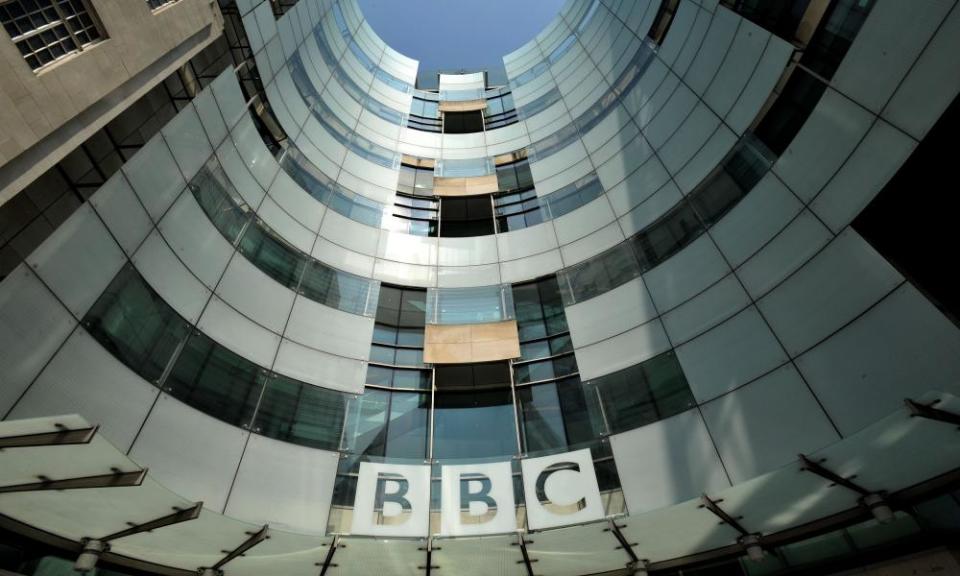BBC faces financial 'uncertainty' due to reliance on licence fee – report

The BBC faces an uncertain future because it relies heavily on the licence fee as its audience share plummets, Whitehall’s spending watchdog has concluded.
In a pointed warning, the National Audit Office said the corporation has postponed making difficult decisions about future income streams, and is dipping into its reserves to cover the cost of free licences for viewers over 75 years old.
Related: Richard Sharp's arrival at the BBC will entrench conservative influence | Tom Mills
The NAO’s findings come amid criticism from senior Conservatives of the BBC and its reliance on the licence fee ahead of the BBC’s charter renewal in December 2027. Richard Sharp, the corporation’s incoming chair, said last month the fee “may be worth reassessing” as part of a review.
Reacting to the findings, Meg Hillier, the chair of the Commons’ public accounts committee, said the BBC has “shied away from making tough decisions for too long and has underestimated the cost of major projects”.
“It is much too complacent about risks that could materialise as soon as next year,” she said.
The watchdog’s report, released today, assesses the BBC’s financial strategy. It said the BBC had been “slow to change” on issues such as the fall in viewing by younger audiences, and still had no central strategy for tackling the problem.
“Falling audience share poses a financial risk as people are less likely to pay the licence fee if they do not view licensable content,” the NAO said.
Examining the corporation’s finances, auditors found that the BBC’s licence fee income fell by £310m between 2017-18 and 2019-20, to £3.52bn.
The number of under-75 households buying TV licences fell by 450,000, due to changes in audience viewing habits and more households qualifying for a free over-75 licence, the report said.
In 2019-20, the BBC generated income of £4.943bn, of which £3.52bn was public funding from the TV licence fee. The BBC began negotiations with the government in November about the future funding it will receive from the fee.
Auditors expressed concern at the corporation’s failure to evaluate its financial future. They said that although the BBC “considers that it delivers significant wider value to British and global society … it has not conducted an economic analysis of this in almost 10 years”.
The corporation’s financial health has also been unexpectedly weakened by the impact of Covid-19, such as a drop in advertising sales, the report said.
Today’s report also examines a drop in viewing. The amount of time an adult spent watching broadcast BBC TV dropped by 30% from an average 80 minutes a day in 2010 to 56 minutes in 2019.
BBC radio audience time has also declined among adults, falling by 15% between 2013-14 and 2019-20, when national commercial radio stations have maintained or increased their audience time.
“Despite its purpose of being a universal broadcaster and still being the most-used media brand in the UK, the BBC has seen a notable drop in audience viewing times. [The BBC’s] principal source of income, the licence fee, has also declined, and the BBC now faces considerable uncertainty about the income it will receive from the licence fee,” the report said.
Gareth Davies, the head of the NAO, said: “The BBC faces significant financial challenges as it embarks upon licence fee negotiations and its midterm charter review.
“It has made significant cost savings and has identified the need for more with licence fee income under pressure.
“As decisions about the licence fee are made, the BBC needs to develop a clear financial plan for the future, setting out where it will invest and how it will continue to make savings.
“Without such a plan, it will be difficult for the BBC to effectively implement its new strategic priorities.”
BBC insiders point out that executives have been examining alternative funding models. In August, it was reported that Tim Davie, the director-general, looked at whether the licence fee could ultimately be replaced with a new special income tax, based on the Swedish model for funding public service broadcasting.
A BBC spokesperson said: “As the NAO has set out, we have made significant savings and increased efficiencies, while maintaining our spending on content, and continuing to be the UK’s most-used media organisation.
“We have set out plans for urgent reforms focused on providing great value for all audiences and we will set out further detail on this in the coming months.
“The report also stresses the importance of stable funding for the future, which we welcome as we begin negotiations with government over the licence fee.”

 Yahoo Finance
Yahoo Finance 